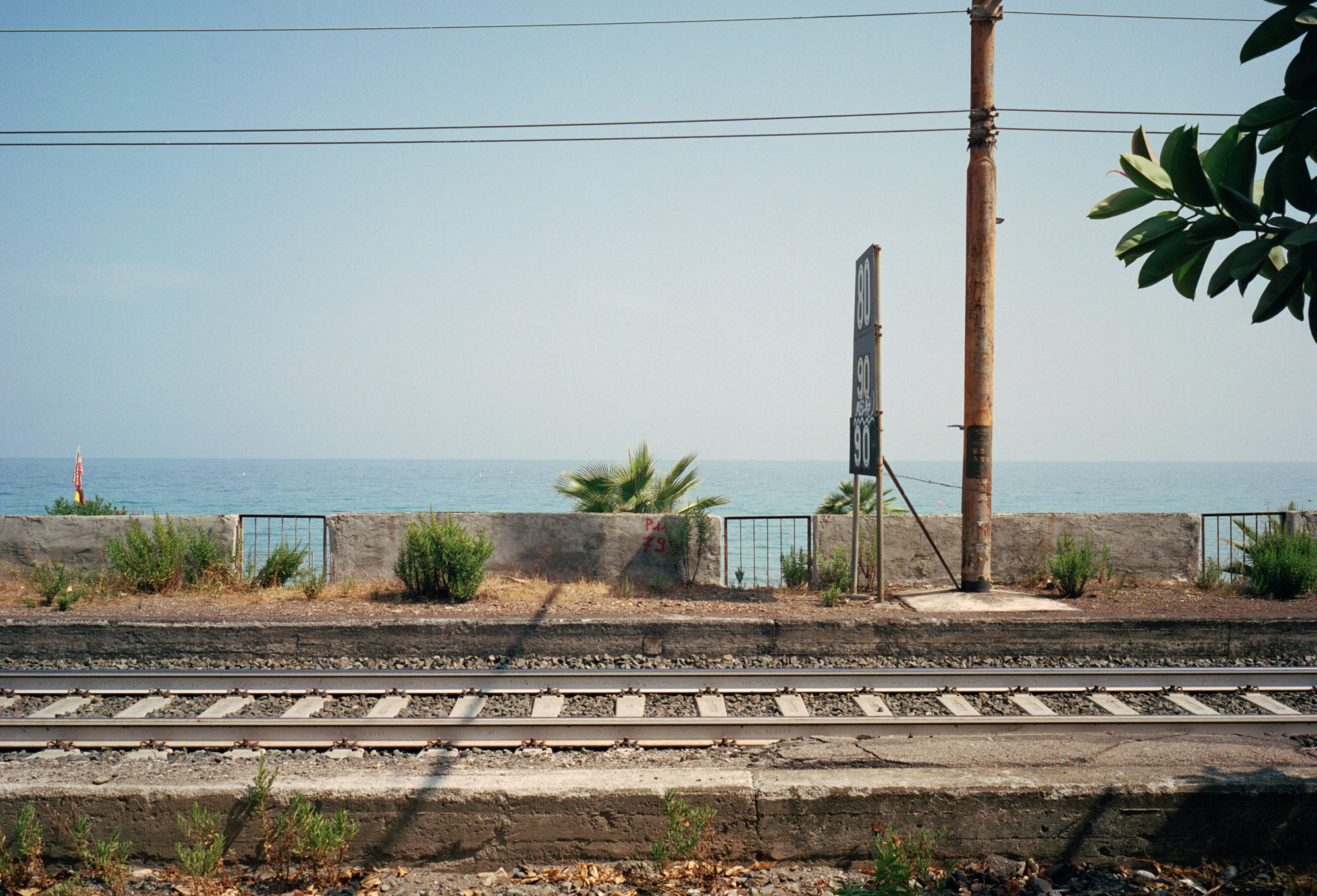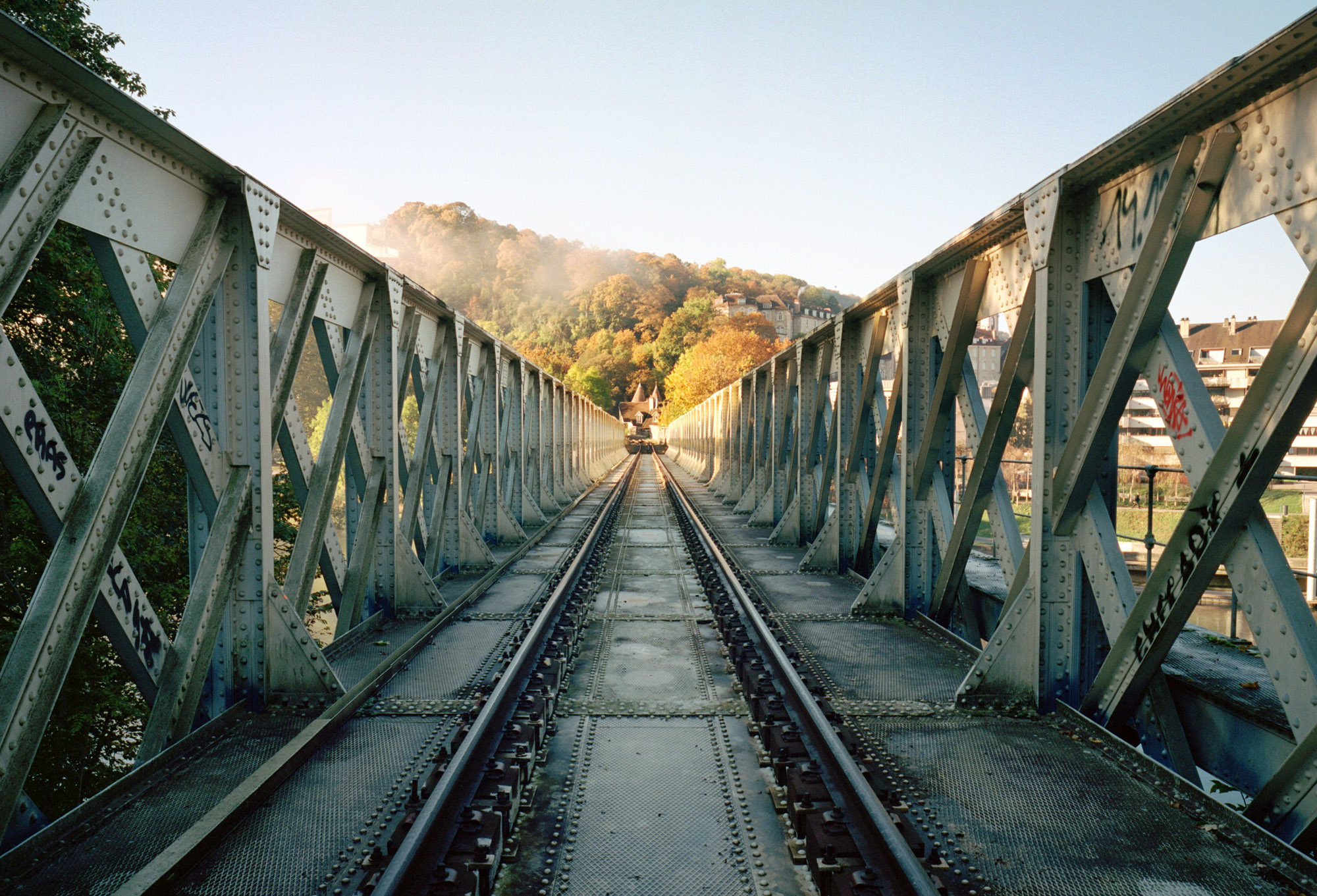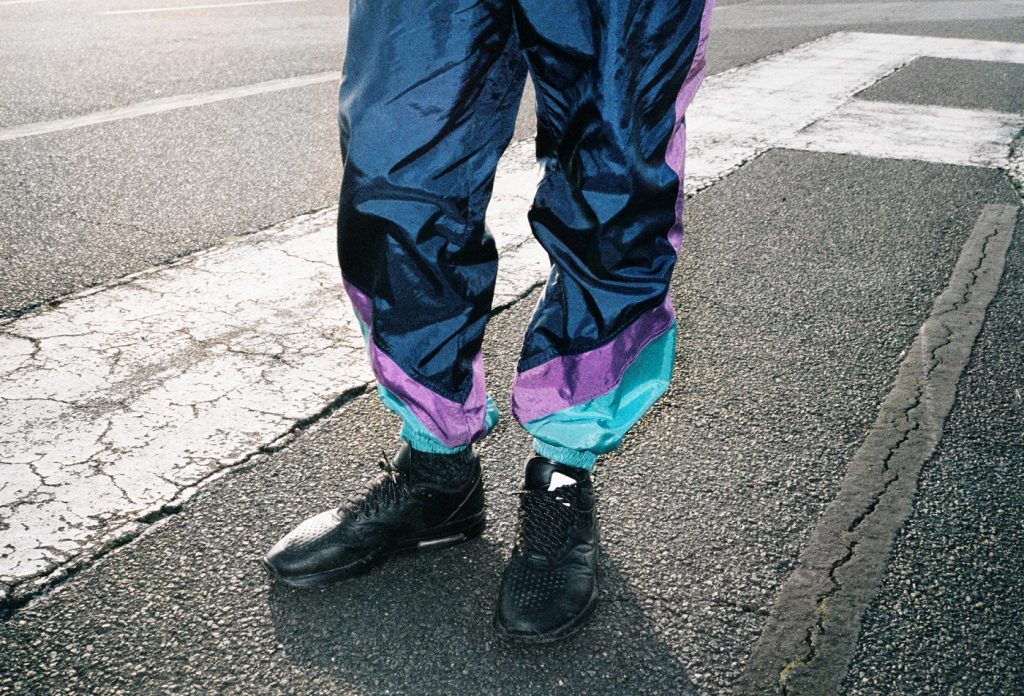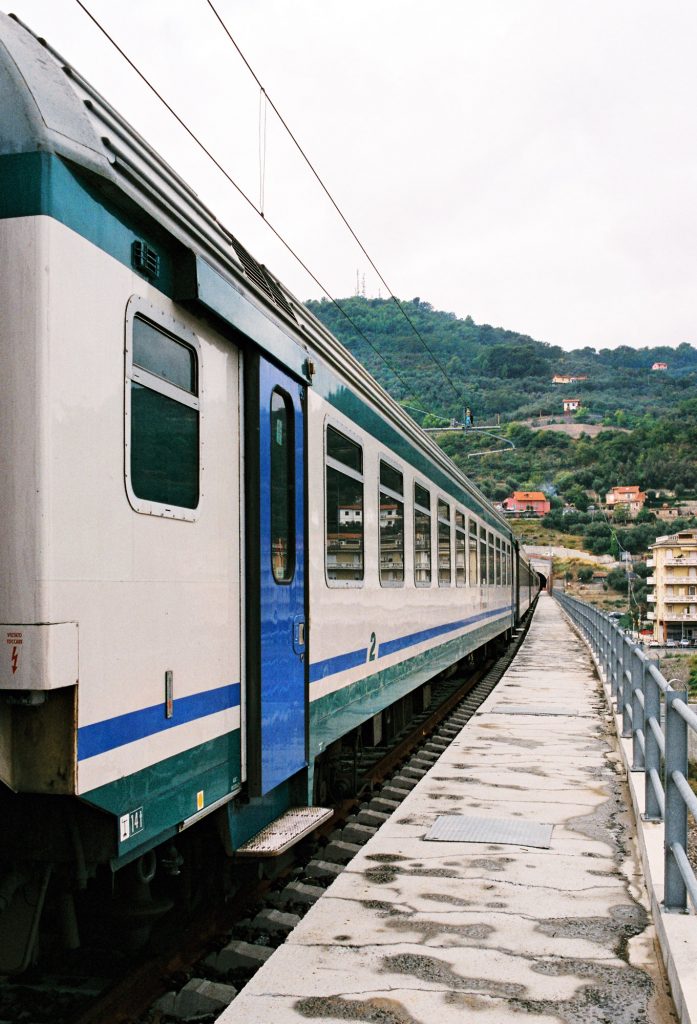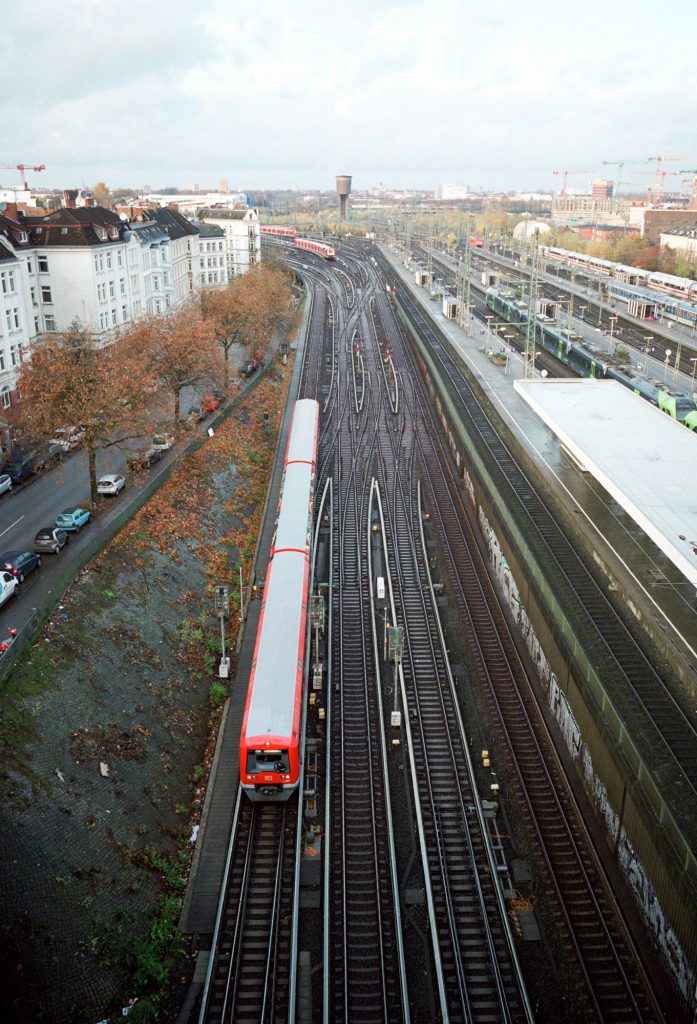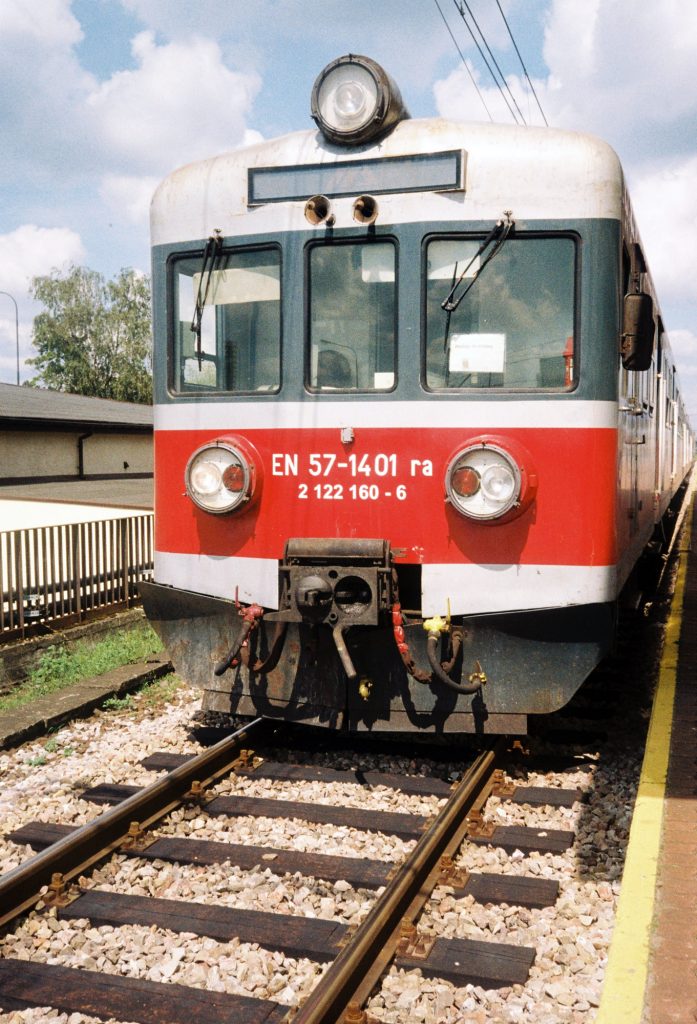FORUM – Nicht nur CO²-Aktivistin Greta Thunberg ist überzeugte Zugreisende: In Zeiten der um sich greifenden „Flugscham“ suchen viele von uns nach neuen, alten Wegen, die Welt zu erkunden! Das französisch-italienische Fotografen-Duo Ama Split und Riky Kiwy ist seit Jahren auf der Schiene unterwegs – und liefert uns im Forum die besten Tipps für Umsteiger, damit ihr eure nächste Zugreise auch maximal genießen könnt. Alles einsteigen, bitte!
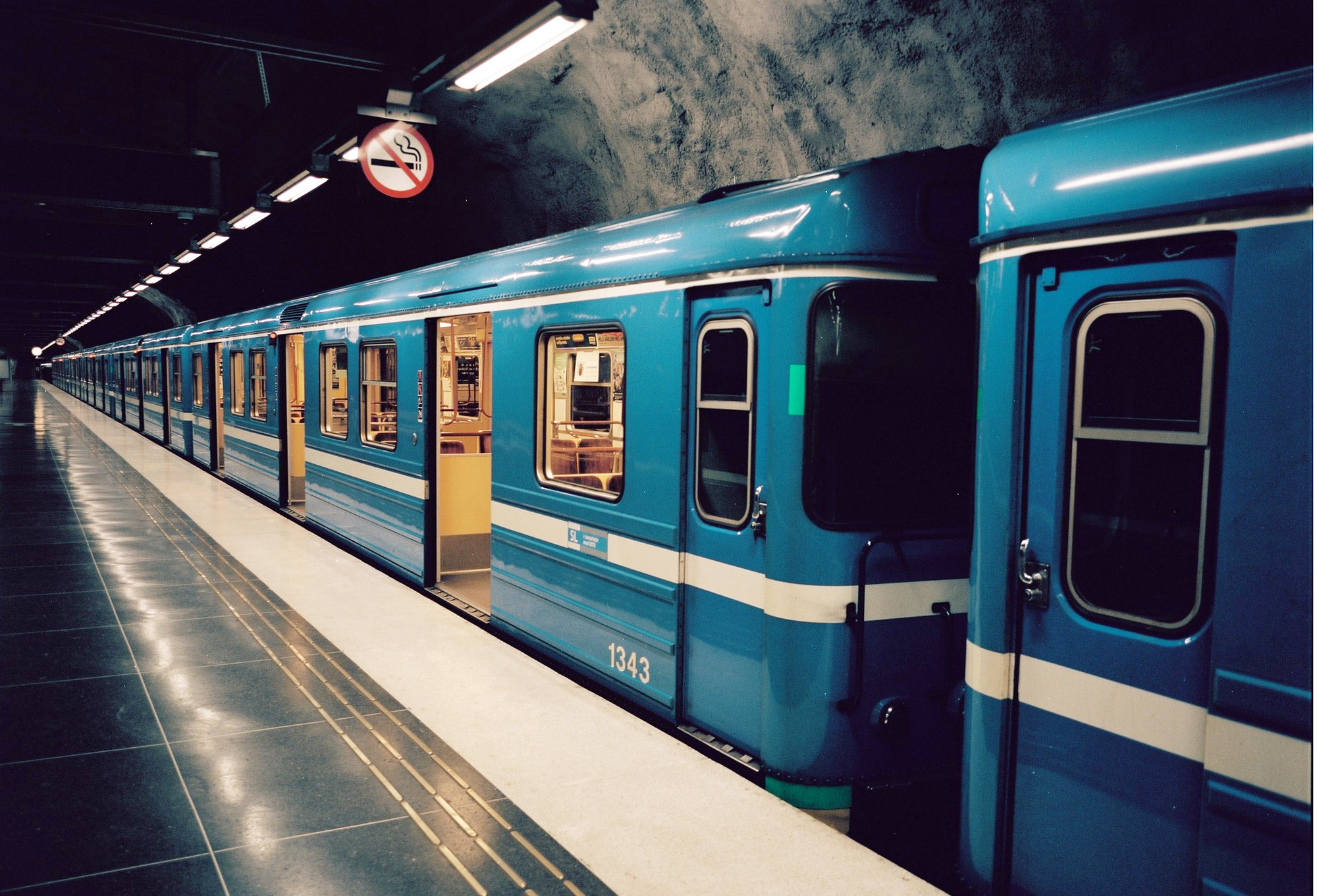
We are photographers and we like to travel and discover the world: new landscapes, new cultures, new music, new vegan cuisine (you can’t imagine how many new dishes we cook at home thanks to our discoveries!). We like to see how people live and move around their own countries.
We are passionate about railways and for us, there is nothing better than the train to travel long or short distances. Compared to airplanes, cars or buses, railways have many advantages and reduce the impact of the travel on the environment.
When you care a little about ecology, the choice between an airline ticket and a train ticket is quickly made.
It would be difficult to list all the experiences we have had with trains, but we can encourage you to use it in 5 ways, follow us!
Number 1: What if we crossed the sea and the continents!
When you travel to a foreign, distant country and seas and lands separate it from your home, don’t think directly about flying. The train can cover immense distances and allows you to discover the landscapes of the countries you will cross. Besides, the good thing is that you don’t drive the train so you can enjoy the view. It is also possible to make a long journey without being exhausted. The train allows you to stretch your legs while walking in the corridors, sleep, read, listen to music, draw, why not knit, in short: relax and enjoy the trip.
Letting yourself be rocked by the train’s movements and rumbling is an experience that must be lived at least once in your life!
One of us has often crossed Italy from North to South with the Freccia Adriatica (a long distance train) to visit the family. From very young age until 25 years old, the trip was each year this one: leaving Milano Centrale at 8p.m and arriving in Apulia the next morning at 9a.m. The adventure was everytime different but one thing is sure, the love for trains has been created and also magical memories of them that will never be forgotten.
What if you have to cross seas and oceans? Well, sometimes the train also braves the water!
You will tell me that it is not common, but for travels in Europe it may be useful. The Channel Tunnel, in operation since 1994 avoids the need to fly across the sea and connects Europe directly to the United Kingdom. If you want to visit London, don’t hesitate to take the train and experience travelling underwater!
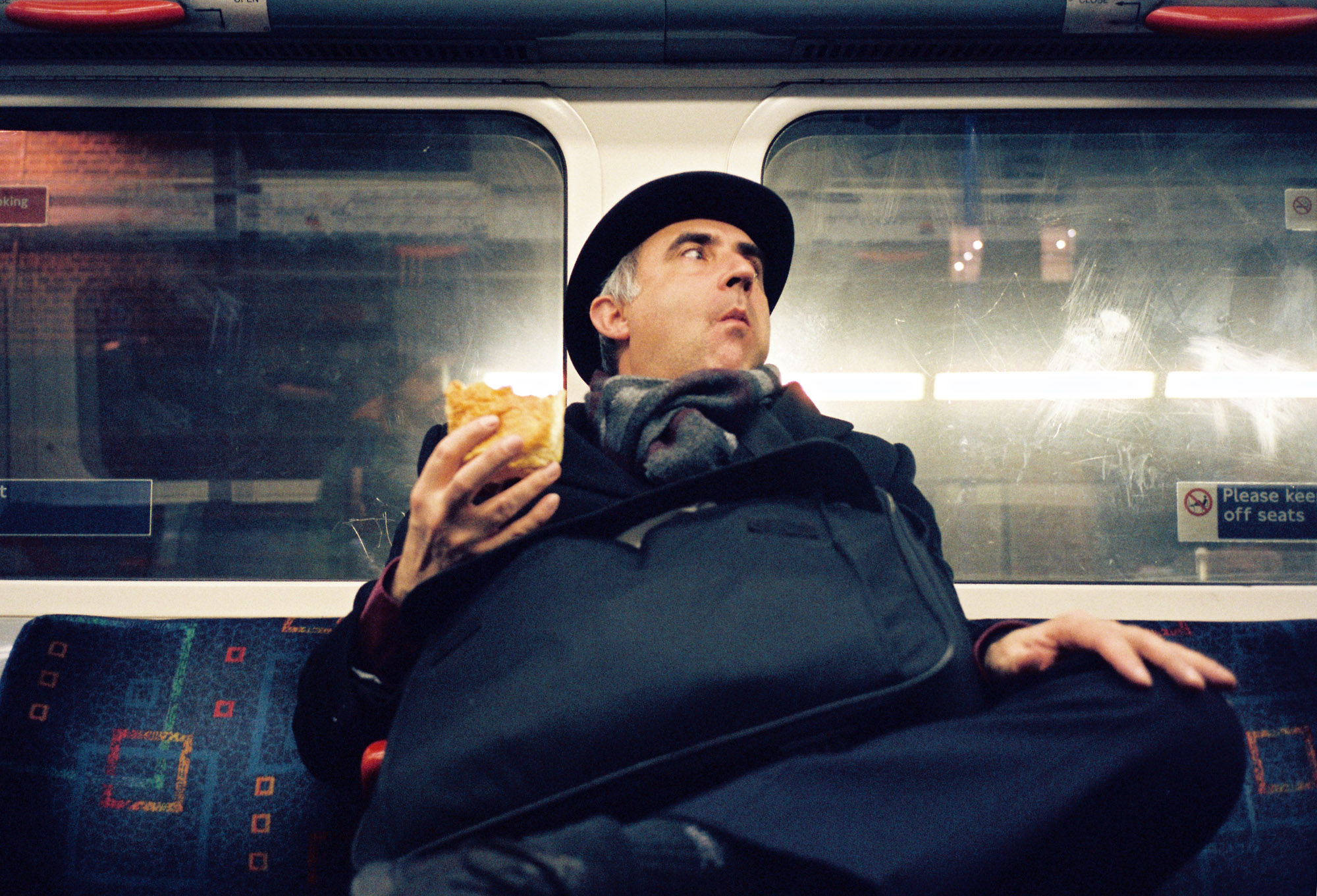
Number 2: Direct Immersion
The train stations are often in the city centre so there is no need to take a shuttle bus as at the airport and stay in a bus even longer than the time you stayed on the plane! And so you avoid polluting again by adding a bus or taxi trip. You arrive directly in the heart of the city by train and can immediately enjoy the new world that is around you. The airport is a sanitized place and certainly you quickly go from point A to point B but you feel a little confused, tired without understanding exactly where you are before reaching the city centre.
Taking the train to travel within the same country is like mixing with the natives, sharing with them a piece of the way.
Listen to the language, learn a few words maybe (the first Polish word we learned is “Uwaga” which means “Attention” because it was written on the doors of the train! ), make new friends, observe the passengers‘ behaviour, see what they read, what they eat. You can learn a lot about a population in a train!
Number 3: Stay connected in a country
People don’t think enough about taking the train for short distances, or even to go to work, school or shopping. Taking the train in your own country to get to a hundred kilometres is not automatic when you own a car and yet it avoids pollution and tiredness. In some remote areas, the train remains the only fast option to travel without using the car. Some trains have become real shuttles to connect rural villages to the nearest town. They become the allies of thousands of people who would otherwise not be able to move. During our trips we saw a lot of people using the train dressed to go to school or to work and being on the train was a time of rest for some or fun for others. We also met people that went to visit friends or family during the day and went back home at the evening, still by train.
Number 4: More than the train, the rails
The trains travel on rails and it is in fact the railways that make it possible to move quickly with maximum avoidance of CO² emissions. There are other means of transport that use the rails and that fascinate us: the subways and the S-trains, the rescuers of big cities. These are means of transport used by both tourists and locals and help to avoid the use of cars. Going to work, school, a theatre class, a movie, shopping or simply visiting the city are so many reasons to use the subway or the S-train. Many people already do this but without really realizing the positive impact it has on the urban environment: less pollution, less stress (insults often occur when driving a car), less parking problems, less road traffic, less engine noise in the city centre and exhaust fumes.
Of course, cycling is still the best way to get around town, but sometimes when it is very cold or when the distance is too long, the subway is very useful!
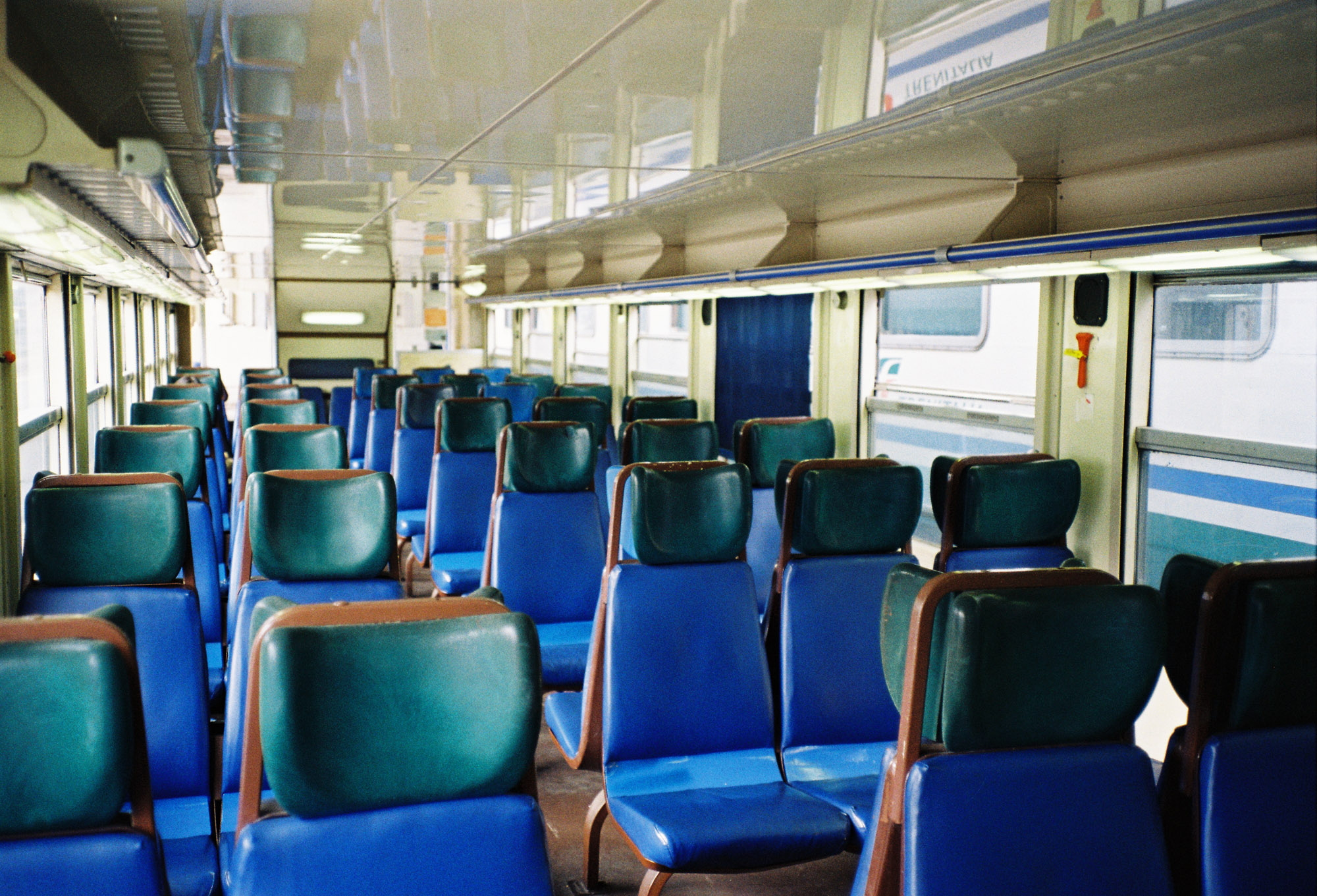
Number 5: Trains and subways: giant toys
Discovering train models is part of the journey. Each train has its own particularities: colours, models, speed, comfort, seats, routes. Taking the train is already an experience in itself regardless of the destination. For example, some Eastern European countries still use old, very well maintained models that plunge us into another time! The train is a bit like a symbol of a country. Next time you take the train, listen carefuly the announcements. Every country and even every city has its own way of doing it: in France you can easily recognize the little jingle that introduces the voice of the SNCF and in a small Italian town, it is the station master who directly announces the trains live on the microphone!
Some subways become the symbol of a city. Think about the London Tube. Everyone knows the “Underground” logo and the particularity of this subway which looks like a long tube which is able to pass through the narrow tunnels of the capital’s underground areas. The Berlin U-Bahn and its yellow color is also part of the identity of the German city and the oldest model with its round shape really looks like a giant remote train. On a train or a subway, you feel like you’re in a giant toy with colorful seats, or on a kind of roller coaster but with less adrenaline of course.
So, are you still hesitating for your next trip?
Ama Split and Riky Kiwy
